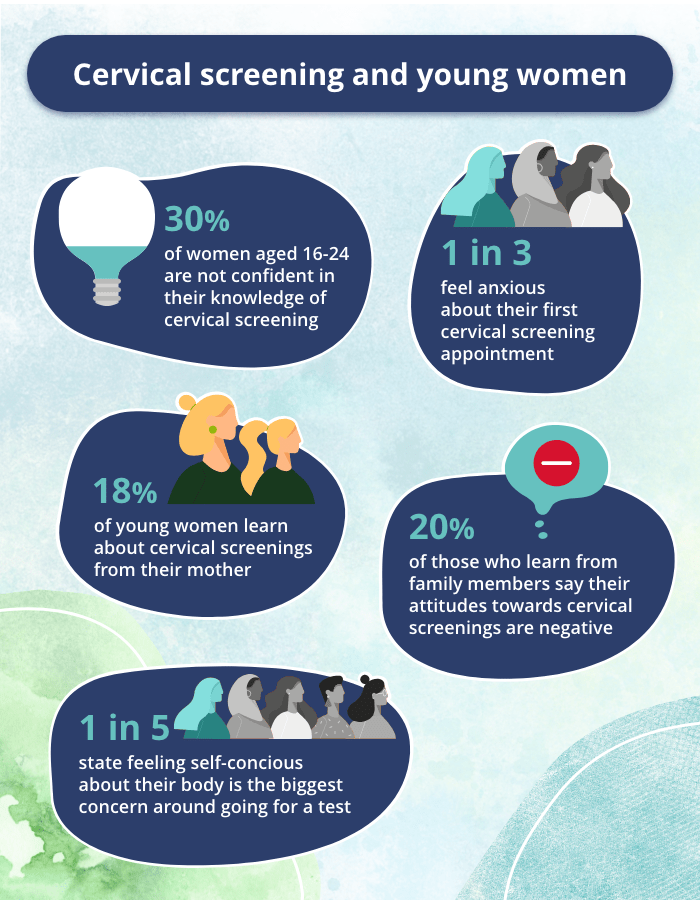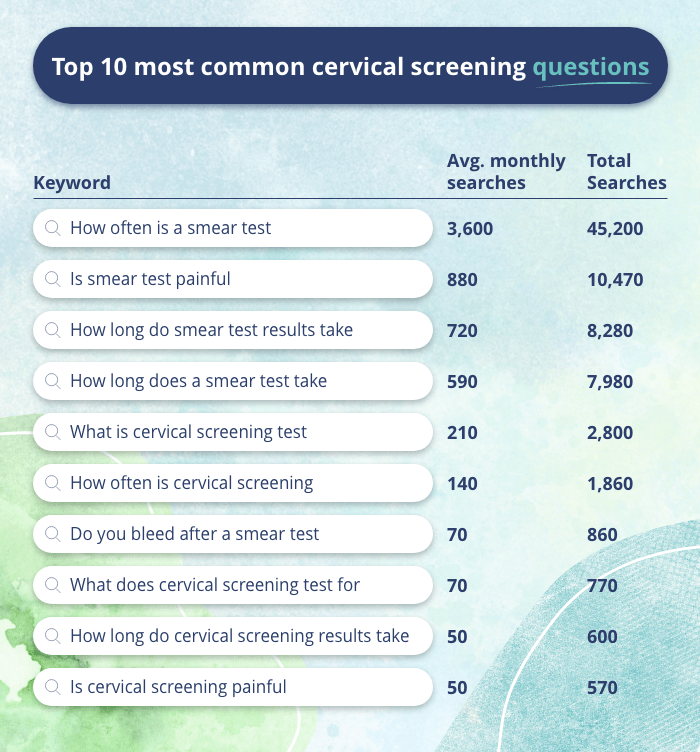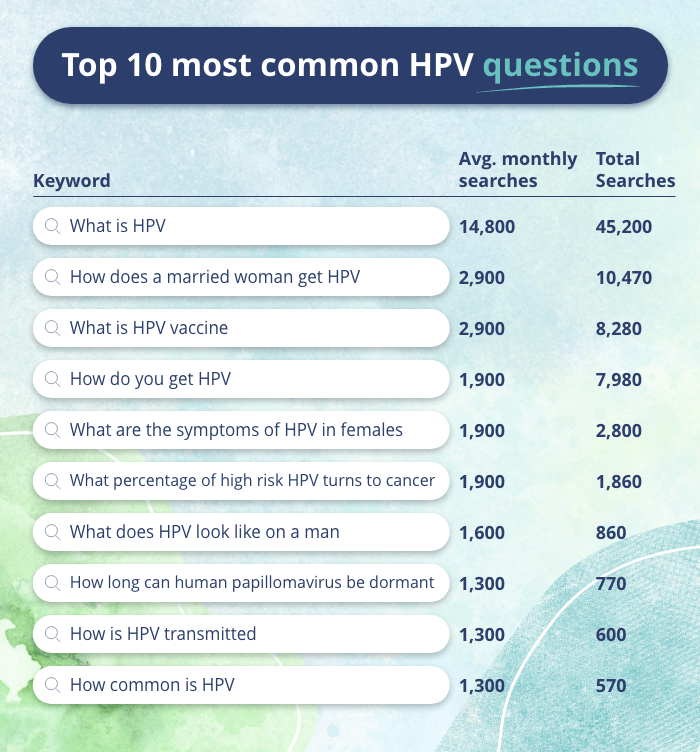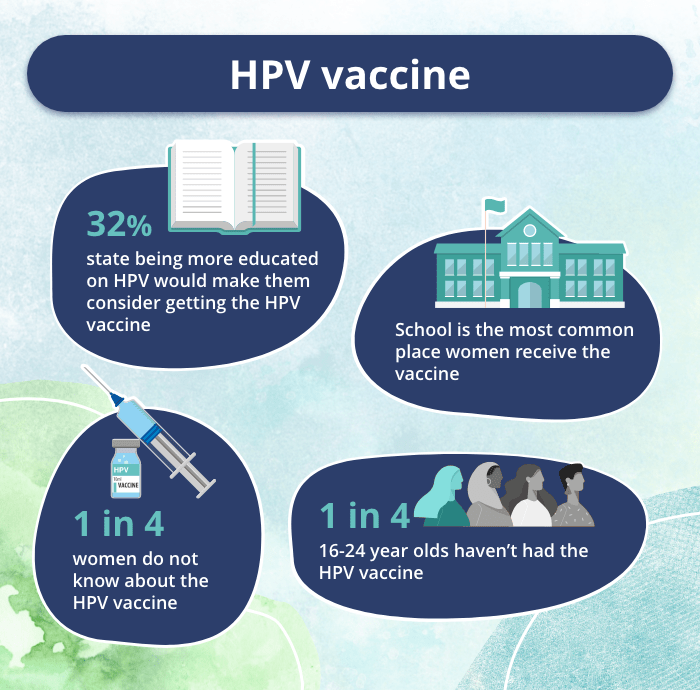Cervical screening, HPV and me
Cervical cancer affects around 3,200 women in the UK each year. In most cases, this type of cancer is caused by the human papillomavirus (HPV). There are over 100 types of HPV and not all of them will cause problems. However, some high-risk types are linked with cancer as they can cause abnormal cells in the cervix. Regular cervical screening is an effective way to identify abnormal cells in the cervix early on. The HPV vaccine can also protect against the virus.
23rd-29th January is Cervical Cancer Prevention Week. We have collaborated with Jo’s Cervical Cancer Trust to raise awareness of ways #WeCan work towards a future where cervical cancer is a thing of the past. Jo’s Cervical Cancer Trust is the UK’s leading cervical cancer charity, which aims to provide support and information to people affected by cervical cancer.
Samantha Dixon, Chief Executive of Jo’s Cervical Cancer Trust says:
Cervical screening can help stop cervical cancer before it starts, so it's a really important test. There are many reasons going can be difficult, including fear, embarrassment or experience of trauma. It's really important every woman has the information and support they need to take up their invite.
We surveyed 1,596 women to find out more about their understanding of HPV, cervical screening and their attitudes towards it. The data revealed that many women feel anxious at the thought of attending a cervical screening, so our aim is to support people through those feelings. We also bust HPV myths, in the interest of educating people on how the HPV vaccine helps prevent cervical cancer.
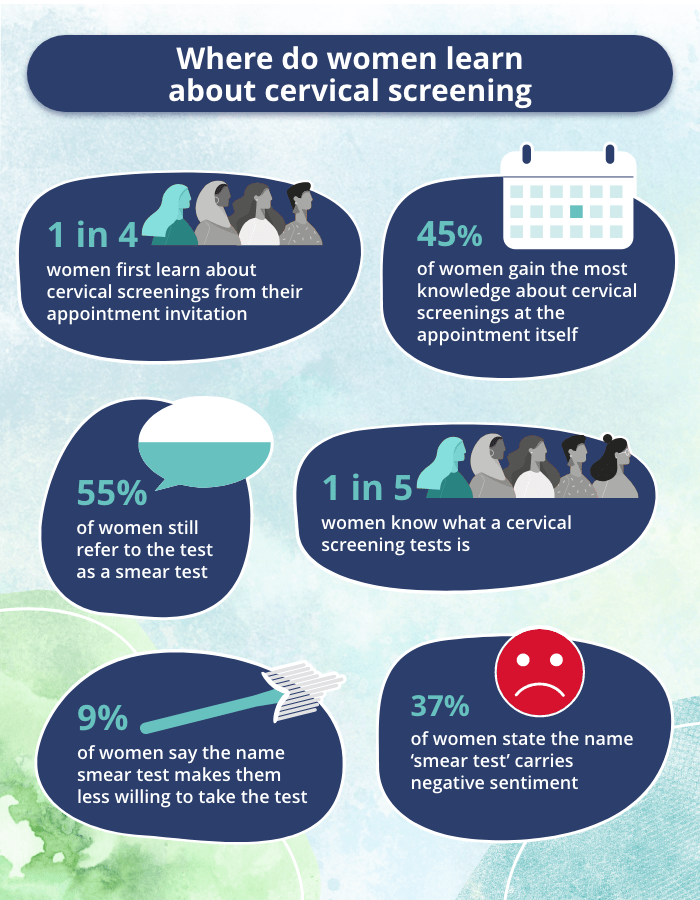
Introducing women to cervical screening
Cervical screening is a health test to check for or high-risk HPV that can cause cervical cells to become abnormal. If HPV is found, the lab will test the sample for cell changes. Despite its official name being cervical screening, our survey showed 55% of women still refer to it as a smear test.
The test was originally called a smear test because it referred to the old way the test was carried out. Cells from the cervix were smeared onto a glass slide to be checked.
Our survey data concluded that those aged 25-35 are more likely to refer to the test as cervical screening (45%) than any other age group. 37% of women feel the name ‘smear test’ is negative, while 9% say it makes them less willing to take it. 2% of women surveyed were less inclined to take the test due to the name smear test. This would equate to hundreds of thousands of women across the UK being unwilling to take it because of the name.
Where do women find out about cervical screening?
Following this, we wanted to discover where women learn about cervical screening. Survey data concluded that 33% of women first find out about cervical screening from their GP, 25% when they receive their cervical screening invitations, and 10% from their mother or a mother figure.
Of those who first learnt from female family members, 15% said their feelings and attitudes towards cervical screening were negative. 4 out of 5 women (80%) believe their female family members’ attitudes about cervical screening influenced their beliefs.
According to survey data, cervical screening appointments are where women gain the most knowledge about cervical screening (44%). 43% of women gain the most knowledge from their GP and 16% from online resources. Just 13% of women said they gain the most knowledge from their mother or a mother figure, and 13% from other family members with a cervix. With social media becoming increasingly important, 10% of those aged 16-24 said they learn the most about cervical screening from influencers.
